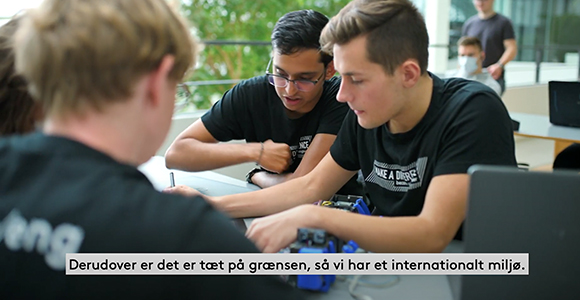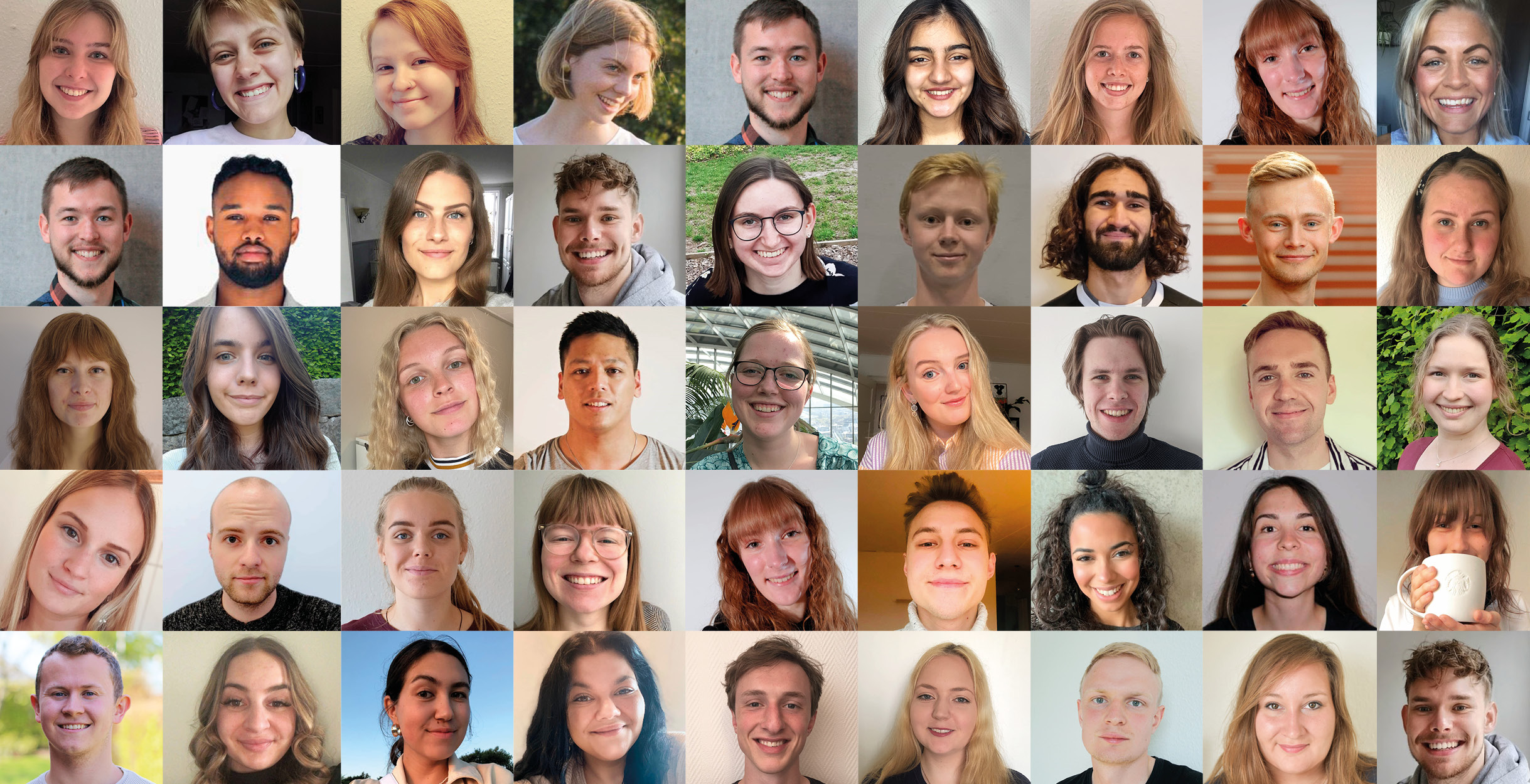Electronics engineers are facing an exceptionally bright future. Are you one of them?
With a Bachelor’s degree in Electronics Engineering, you can make a real-life impact in society. Electric cars, green energy technology such as wind turbines or solar panels, electronics for the intelligent home or energy reducing systems are just some of many options. Are you dreaming about combining scientific and engineering knowledge with creativity to solve some of today's biggest electronic engineering challenges? Then continue reading.
Take a quantum leap – become an engineer in electronics
The world relies on the ingenuity of electronics engineers, who can innovate, collaborate and make their mark on the world. With a degree in Electronics Engineering from SDU you can switch on your potential.
First-job guarantee
As a new engineering graduate from SDU Sønderborg, you are offered 6 months of employment if you haven’t landed your first job after you finished your MSc studies. Please note that this guarantee applies only after you have completed your MSc in Electronics, following your BSc in Electronics.
Read more about the first-job guarantee
Reasons to study
That is why you should study...
- You are guaranteed your first job once you have completed the master's programme
- You learn to develop and design electronic products
- You have good career opportunities both in Denmark and abroad
What will you learn?
You will learn to develop different types of electronic products. This can, e.g., be within green energy systems such as wind turbines and solar cells, robots, electric cars or electronics for medical equipment.
You will
- learn the scientific theories and tools used for developing and testing analogue, digital and power electronics as well as signal processing systems
- learn how to develop advanced software and how to use computer-based modelling and simulation tools for electronic components and circuits
- be taught in the design of electronic circuits, which requires strong skills in advanced mathematics and a good understanding of the underlying physics
- learn to consider not only the scientific and technical aspects – a broader approach is needed when developing new electronic products
- learn how research-based knowledge is generated and disseminated, and the scientific approach for designing, testing and documenting
- work in project groups, where you and your fellow students will solve problems through case-based work based on your scientific knowledge and technical know-how
- learn how to apply the theoretical knowledge in practice as well as how to work on a project incl. project planning, risk assessment, teamwork etc.
How is the education structured?
The programme consists of a combination of theoretical courses and practical project work in groups. Each semester includes a semester project where learn how to apply the knowledge obtained the theory courses in a practice.
- In the first semester, you are introduced to the basic electronic components and how to analyse electronic circuits. You learn how to write a program for an embedded computer system, and you build up your knowledge in mathematics and physics.
- In the second semester, you will learn about more advanced electronic circuits with active components, signal processing using electronic filters as well as more advanced mathematical tools for circuit analysis.
You will also learn about experiment design and how to write scientific documentation.
- In the third semester, you will learn about electromagnetism and expand your electronics knowledge working with more complex electronic systems such as frequency converters and electric motors as well as learning digital signal processing. You will also be introduced to scientific publications.
- In the fourth semester, you will learn about complex digital electronic circuits as well as the basics of power electronics and control engineering.
- The fifth semester is about interdisciplinary collaboration where you work in a project group with students from other engineering disciplines, and where you will combine your electronics expertise with their expertise within, e.g., mechanical engineering to develop a complex product. You will also learn about additional advanced mathematical tools and high frequency communication.You can also choose to study this semester abroad.
- In the sixth semester, you will write your bachelor project while you learn about more advanced electromagnetics and control engineering systems that prepare you for further studies at a MSc programme.
Read more about the structure of the programme.
”Better Energy needs electronics engineers because they are key to increasing renewable energy, finding better solutions, and making the grid work efficiently. At Better Energy, electronics engineers help optimize, design, ensure compliance, lead new projects, and integrate power into the grid.
What can you become?
With a Bachelor's degree in Electronics, it is possible to continue your studies with a Master's degree in Electronics. As a graduate (Master of Science) in Electronics, you will typically work in development, project management, consulting or sales. You can, for example, work with electronics for sustainable energy technology or for medical equipment, computers and data networks, software development, robot and drone technology and many other types of products that are based on advanced electronics. The programme gives you several career opportunities - both in Denmark and abroad.
Read more about career opportunities here.
”At Bitzer, we need electronics engineers because electronics are a crucial part of our products. We thrive on delivering robust electronics with long lifespans that are also competitively priced. Our engineers work on all aspects of electronics development and production, including design, schematic, PCB layout, EMC, testing, production testing, approvals, software, and quality improvements. This requires the right skills, making talented electronics engineers indispensable to us.
Can you continue your studies?
The bachelor's programme lasts three years, after which you take the two-year master's programme to achieve a Master’s degree in Electronics. A Bachelor in Electronics will therefore often continue the programme with a relevant master's degree in, for example, Electronics in Sønderborg.




